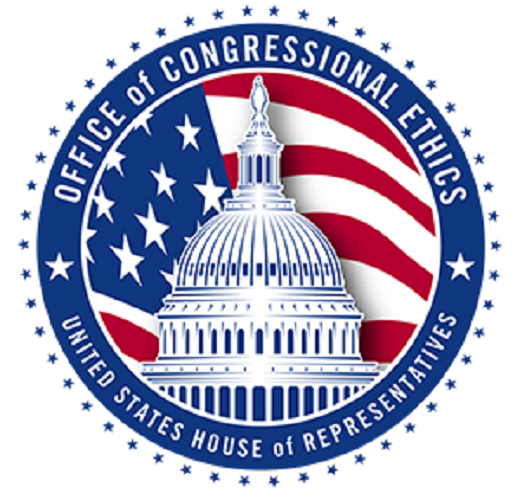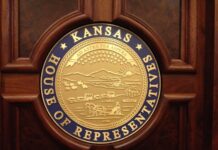A Washington, D.C.-based government watchdog group on Thursday filed an ethics complaint against Republican Congressman Steve Watkins.
Americans for Public Trust, which describes itself as an independent, nonprofit organization, is asking the Congressional Ethics Office to investigate Watkins for voter fraud and election perjury.
Watkins’ office could not be reached for immediate comment early Thursday afternoon.
Local authorities are now investigating whether Watkins violated any election laws when he first reported using the address of a UPS Store in Topeka instead of his home.
“Members are required to abide by the Constitution and all applicable law, and as a resident of Kansas, Rep. Watkins is subject to Kansas statute,” the complaint said.
“Multiple news outlets have reported that Rep. Watkins signed three official election documents declaring that his residential address was a UPS store which ‘could constitute felony voter fraud under federal law and election perjury under state statute, officials said.'”
“During his campaign for Congress, Rep. Watkins made numerous documented falsehoods,” the complaint states.
“Now as an elected member, Rep. Watkins is accused of felony voter fraud and perjury, behavior that is unbecoming of a member of Congress and undermines the public trust.”
The complaint was signed by the group’s executive director, Caitlin Sutherland.
Sutherland’s LinkedIn profile shows she also worked as the research director for the National Republican Congressional Committee from March 2018 to March 2019.
She also worked as the NRCC’s deputy research director.
Watkins is now facing a primary this summer in the 2nd Congressional District from Kansas Treasurer Jake LaTurner.
Watkins would likely face Topeka Mayor Michelle De La Isla if he prevails in the primary.
Last week, Watkins released a poll of 594 likely Republican primary voters that showed him leading LaTurner with 49% of the vote. LaTurner was at 23%.
Twenty-eight percent of those polled were undecided.
The Congressional Ethics Office reviews allegations of misconduct against members, officers and employees of the House of Representatives.
The office’s eight-person board of directors must authorize each stage of an investigation and decide whether to recommend the matter to the House Ethics Committee.
There are two phases in the investigation: a preliminary review and secondary review.
At the end of each stage, the board must vote to decide whether to proceed to the next phase of review or dismiss the case.
The preliminary review is limited to 30 days, while the second phase is initially limited to 45 days, with the option for extending it another 14 days.
The process is confidential, and all information gathered during the investigation is closed until the House Ethics Committee makes the report open to the public
















